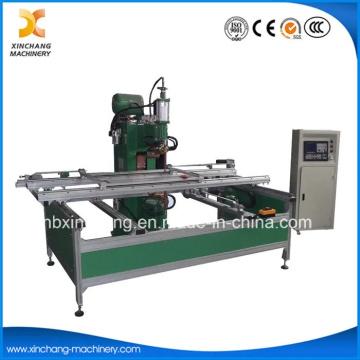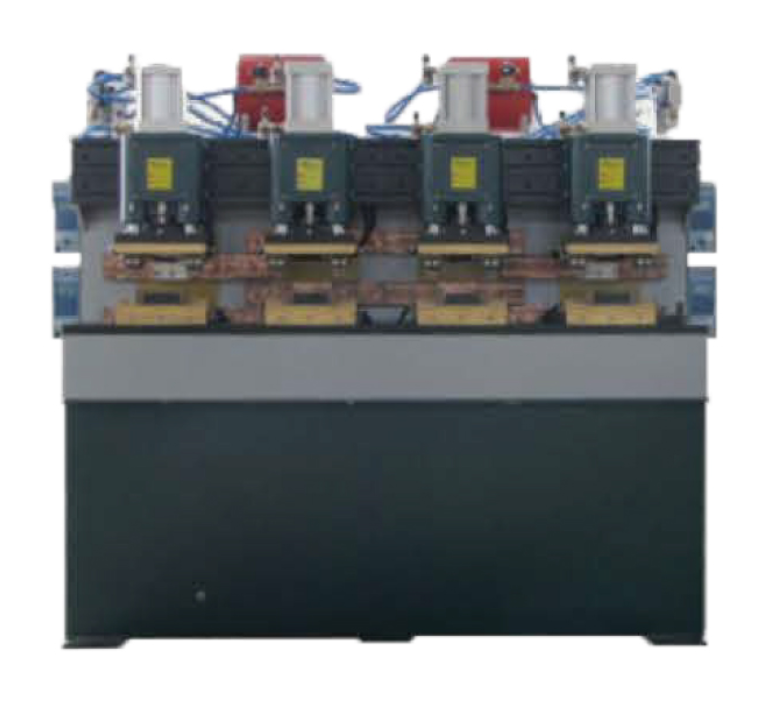Industry Special Machine
(Total 2 Products)
-


X Y Axis Spot Welding Machine for Storage Wire Shelf
Contact Now
-
-
Brand:xinchang
Min. Order:1
CNC Automatic Electric Resistance Projection Spot Welder Machine Product Description In the diversified landscape of welding equipment, Automatic CNC Spot Welder, with its deep integration of automation and numerical control technology, redefines...
-
Among the large family of Welding equipment, each type of Machine performs its own duties. The Plate Heat Exchanger Welding Machine, with its precise control over the welding of plate heat exchangers, has become a leader in the industry. Unlike the...
An Industry Special Machine refers to customized equipment designed for specific manufacturing processes in particular sectors, tailored to meet unique production requirements that standard machines cannot fulfill. These specialized devices integrate mechanical, electrical, and automated technologies, playing a crucial role in improving production efficiency, precision, and consistency across various industries.
Core Characteristics
Industry special machines are distinguished by high customization, with configurations, functions, and workflows tailored to specific tasks. They feature strong process adaptability, capable of handling complex, specialized operations like precision assembly, unique welding, or custom material processing. Equipped with dedicated tooling and fixtures, they ensure stable quality for specialized products. Most integrate automation systems, reducing manual intervention and enhancing production reliability.
Main Types
Common types include special assembly machines for automotive components, customized welding machines for metal fabrication, precision testing equipment for electronics, and dedicated packaging machines for food processing. In heavy industry, there are special forging and casting machines, while the medical sector uses specialized devices for instrument manufacturing and pharmaceutical production. Each type is engineered for its industry’s unique materials, processes, and quality standards.
Advantages
They significantly improve production efficiency by streamlining specialized processes, often achieving 2-5 times higher throughput than general-purpose equipment. Customized design ensures precise control over key manufacturing steps, reducing product defects. They enhance workplace safety by automating hazardous operations. Long-term cost-effectiveness is achieved through reduced waste, lower labor costs, and extended equipment lifespan tailored to specific production demands.
Applications
In automotive manufacturing, they assemble engine components and perform specialized welding. Electronics industry uses them for circuit board testing and micro-component processing. Aerospace relies on them for precision machining of complex parts. Food and beverage sectors employ special filling and packaging machines. Medical device production utilizes them for sterile assembly and precision bonding of delicate components.
Development Trend
Modern industry special machines are integrating intelligent technologies like IoT connectivity and data analytics for predictive maintenance. AI-powered vision systems enable real-time quality inspection. Modular designs allow easier upgrades and reconfiguration for changing production needs. Energy-efficient components and eco-friendly materials are increasingly adopted, aligning with sustainable manufacturing goals. Human-machine collaboration features, like ergonomic interfaces, are enhancing operational convenience and flexibility.
Industrial special equipment is a non-standard automation system developed for specific industries or process links, filling the technological gap between general equipment and production demands. Focusing on high-end fields such as new energy, semiconductors, and aerospace, the global market size exceeded 280 billion US dollars in 2023, with a compound annual growth rate of 12%.


